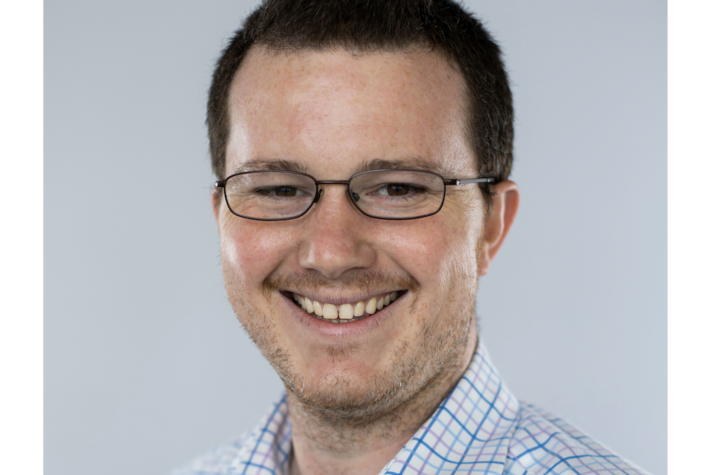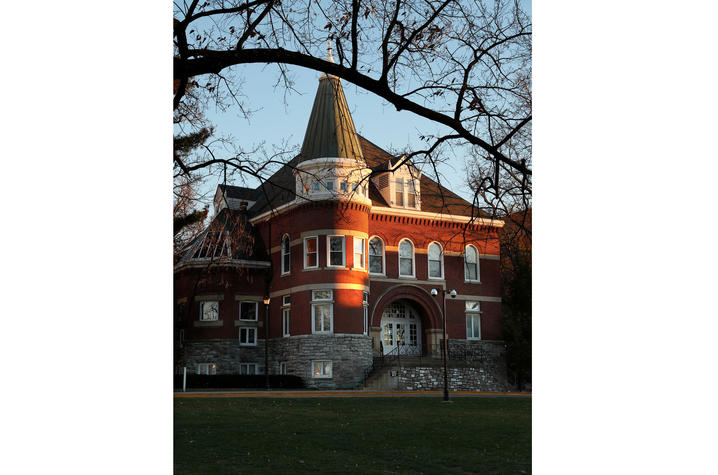Postdoctoral Affairs and Development: Q&A With Graduate School's Joseph Lutz
LEXINGTON, Ky. (April 29, 2020) — With the rising trend in postdoctoral development, the University of Kentucky Graduate School is investing in this integral part of the institution’s fabric.
Joseph Lutz was recently appointed to the position of director of postdoctoral affairs in The Graduate School.
Lutz’s newly established position is co-funded by The Graduate School, the Office of Faculty Advancement, and the College of Arts and Sciences.
UKNow recently spoke with Lutz to learn more about postdoctoral professional development at the University of Kentucky.
UKNow: What is a postdoc?
Lutz: As defined by the National Postdoctoral Association (NPA), "’A postdoctoral scholar ('postdoc') is an individual holding a doctoral degree who is engaged in a temporary period of mentored research and/or scholarly training for the purpose of acquiring the professional skills needed to pursue a career path of his or her choosing."
UKNow: Could you explain what postdoctoral professional development entails and why it is so important?
Postdoctoral positions are, by nature, designed to include a lot of career and professional development given their temporary and mentored nature. In fact, postdoctoral training is generally thought of as an important period of protected and mentored research to build independence for a faculty position. Many research fields require scientists and scholars to complete a postdoc to be marketable for a faculty position.
While the majority of postdocs are interested in faculty positions, not all are, and not all postdocs become faculty. The nonfaculty job market for postdocs is a promising option for employment, and they get jobs in a wide variety of sectors and industries.
UKNow: What kind of career and professional enhancement opportunities does your office provide postdocs?
Lutz: Given the precariousness of the faculty job market, my office works to reinforce the idea that career exploration is foundational for postdoc professional development. In addition, my office supports opportunities for faculty career preparation such as grant writing, manuscript writing, faculty job searching, leadership, etc. and opportunities for nonfaculty career preparation starting with career exploration training and other opportunities to learn about other skills in entrepreneurship, communication, advocacy, etc.
Importantly, I work in close coordination with the Office of Graduate Student Professional Enhancement, which serves the more than 5,000 graduate students at UK, to connect postdocs with the many programs and resources they provide to the campus community, including courses (Preparing Future Faculty and Preparing Future Professionals), webinars, research communication competitions (e.g., Three-Minute Thesis) and institutional subscriptions to online exploratory and planning tools (e.g., The Versatile PhD and Aurora).
In addition, my office works in partnership with other offices and organizations on campus dedicated to professional enhancement for graduate students and postdocs such as the Society of Postdoctoral Scholars, the Office of Biomedical Education, the Markey Cancer Center (https://ukhealthcare.uky.edu/markey-cancer-center), the Von Allmen Center of Entrepreneurship (http://vace.uky.edu/), and UK Research (https://www.research.uky.edu/).
UKNow: How many postdocs are there currently at UK?
Lutz: We currently have 276 postdocs at UK.
UKNow: What are some goals that you hope to achieve in this new role?
Lutz: A short term goal is to streamline the appointment process for postdocs. We currently use a complicated, decentralized process. My office is working to revise the process with an emphasis on aligning expectations between postdocs and mentors early in the process.
This is an area where postdocs and mentors often struggle, and my hope is that my office can help facilitate this important conversation during the appointment process.
One longer term goal my office has is to build a comprehensive annual career and professional development program for postdocs with modules focusing on six learning objectives: communication, leadership, mentoring, project management, funding and well-being.
UKNow: What are some of the needs of UK postdocs for professional/career development?
Lutz: When my office was first established, I organized a town hall meeting with UK postdocs and asked them what their critical needs were. I learned that many of their requests were related to career and professional/career development and included: job search support for both faculty and nonfaculty jobs, grant and manuscript writing training, and professional skills development on topics like time management, project management and networking.
In response, my office launched a peer mentoring group initiative in which we currently have 5 groups who meet every other week (now via Zoom) and focus on (1) career exploration, (2) faculty job search, (3) non-faculty job search, (4) grant writing, and (5) manuscript writing.
UKNow: How is the UK postdoc orientation helping to reach the goal of tending to student development and curating that community of belonging?
Lutz: Orientations are held every first Friday of the month. We begin with an honest conversation about the question ‘what is a postdoc’ and the NPA definition. I emphasize this definition to ensure that incoming postdocs make their training intentional with a career objective in mind. I also share information about various resources available to them on campus (Graduate School, UK Research, The International Center, etc.), opportunities my office creates, and we spend a little bit of time talking about administrative considerations.
The main goals of the orientation are to give a face to the Office of Postdoctoral Affairs, invite postdocs to engage with the office and participate in our activities, and to allow them to meet other postdocs outside their department to support an integrated UK postdoc community.
UKNow: Why is UK investing in postdocs?
Lutz: Postdocs are an integral part of the institutional fabric. They conduct and write up research, mentor undergraduate and graduate students, run labs, teach classes, etc. Investing in their professional development allows UK to attract high quality postdocs, which in turn improves the quality of graduate education, the core mission of the UK Graduate School. In addition, when our postdocs move into their careers and become postdoc alumni, they become ambassadors for UK. We want them to be well equipped and to have every professional advantage to succeed in their careers.
As the state’s flagship, land-grant institution, the University of Kentucky exists to advance the Commonwealth. We do that by preparing the next generation of leaders — placing students at the heart of everything we do — and transforming the lives of Kentuckians through education, research and creative work, service and health care. We pride ourselves on being a catalyst for breakthroughs and a force for healing, a place where ingenuity unfolds. It's all made possible by our people — visionaries, disruptors and pioneers — who make up 200 academic programs, a $476.5 million research and development enterprise and a world-class medical center, all on one campus.
In 2022, UK was ranked by Forbes as one of the “Best Employers for New Grads” and named a “Diversity Champion” by INSIGHT into Diversity, a testament to our commitment to advance Kentucky and create a community of belonging for everyone. While our mission looks different in many ways than it did in 1865, the vision of service to our Commonwealth and the world remains the same. We are the University for Kentucky.






